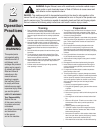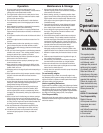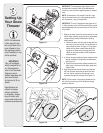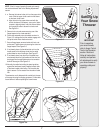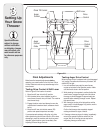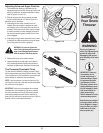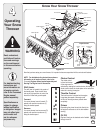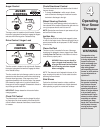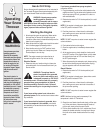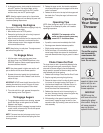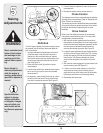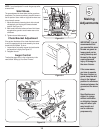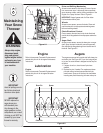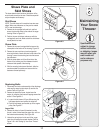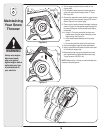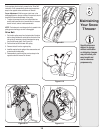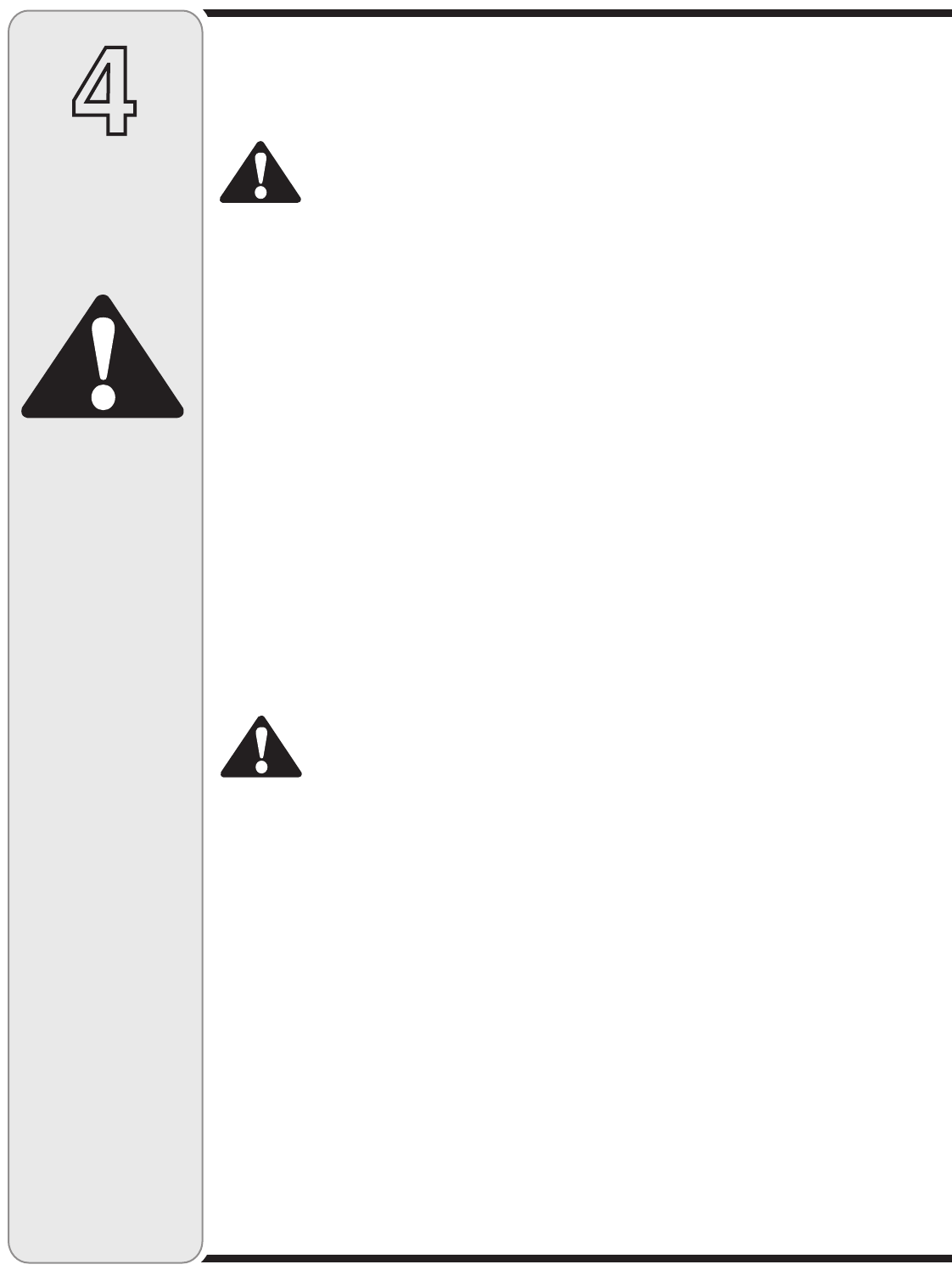
12
WARNING
Use extreme care when
handling gasoline.
Gasoline is extremely
flammable and the vapors
are explosive. Never fuel
the machine indoors or
while the engine is hot
or running. Extinguish
cigarettes, cigars, pipes
and other sources of
ignition.
4
Operating
Your Snow
Thrower
The electric starter is
equipped with a grounded
three-wire power cord
and plug and is designed
to operate on 120 volt AC
household current. It must
be used with a properly
grounded three-prong
receptacle at all times
to avoid the possibility
of electric shock. Follow
all instructions care-
fully prior to operating the
electric starter.
Gas & Oil Fill-Up
Service the engine with gasoline and oil as instructed in
the Tecumseh Engines manual packed separately with
your snow thrower. Read instructions carefully.
WARNING: Use extreme care when
handling gasoline. Gasoline is
extremely flammable and the vapors
are explosive. Never fuel machine indoors or while
the engine is hot or running. Extinguish cigarettes,
cigars, pipes and other sources of ignition.
Starting the Engine
1. Attach spark plug wire to spark plug. Make certain
the metal loop on the end of the spark plug wire
(inside the rubber boot) is fastened securely over the
metal tip on the spark plug.
2. Make certain both the auger control and drive control
are in the disengaged (released) position.
3. Move throttle control up to FAST position. Insert
ignition key into slot. Make sure it snaps into place.
Do not attempt to turn the key.
NOTE: The engine cannot start unless the key is
inserted into ignition switch. Do not turn the key.
Electric Starter
1. Determine that your home’s wiring is a three-wire
grounded system. Ask a licensed electrician if you
are not certain.
WARNING: The optional electric
starter is equipped with a grounded
three-wire power cord and plug, and
is designed to operate on 120 volt AC
household current. It must be used with a properly
grounded three-prong receptacle at all times to
avoid the possibility of electric shock. Follow all
instructions carefully prior to operating the electric
starter.
If your house wiring system is not a three-wire
grounded system, do not use this electric starter under
any conditions.
If your home electrical system is grounded, but a
three-hole receptacle is not available, one should
be installed by a licensed electrician before using the
electric starter.
If you have a grounded three-prong receptacle,
proceed as follows:
1. Plug the extension cord into the outlet located on the
engine’s surface. Plug the other end of extension cord
into a three-prong 120-volt, grounded, AC outlet in a
well-ventilated area.
2. Rotate choke control to FULL choke position (for a cold
engine start).
NOTE: If the engine is already warm, place choke control
in the OFF position instead of FULL.
3. Push the primer two or three times for cold engine
start, making sure to cover vent hole in the center of
the primer when pushing.
NOTE: DO NOT use primer to restart a warm engine after
a short shutdown.
4. Push starter button to start engine.
5. Once the engine starts, immediately release starter
button.
6. As the engine warms, slowly rotate the choke control
to the OFF position. If the engine falters, quickly rotate
the choke control back to FULL and then slowly into
the OFF position again.
7. When disconnecting the extension cord, always unplug
the end at the three-prong wall outlet before unplug-
ging the opposite end from the snow thrower.
Recoil Starter
1. Rotate choke control to FULL choke position (cold
engine start).
NOTE: If the engine is already warm, place choke control
in the OFF position instead of FULL.
2. Push the primer two or three times for cold engine
start, making sure to cover vent hole in the center of
the primer when pushing.
NOTE: DO NOT use primer to restart a warm engine after
a short shutdown.
NOTE: Additional priming may be necessary if the
temperature is below 15° Fahrenheit.
3. Grasp the recoil starter handle and slowly pull the rope
out. At the point where it becomes slightly harder to
pull the rope, slowly allow the rope to recoil.
4. Pull the starter handle with a firm, rapid stroke. Do not
release the handle and allow it to snap back. Keep a
firm hold on the starter handle and allow it to slowly
recoil.



